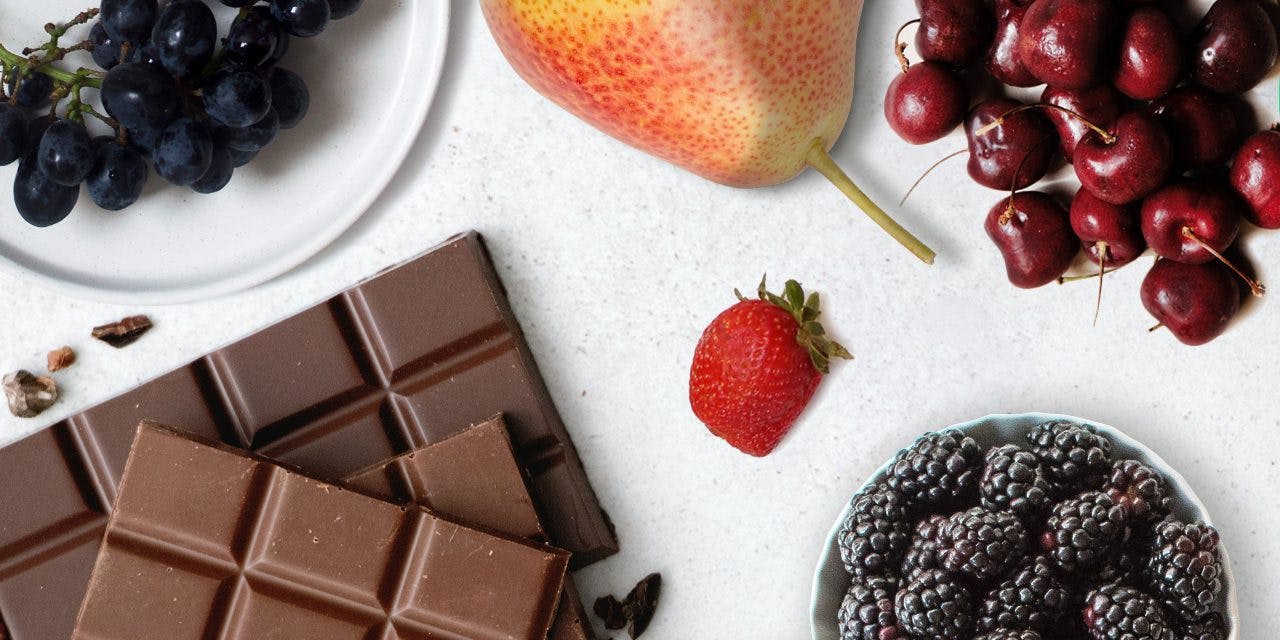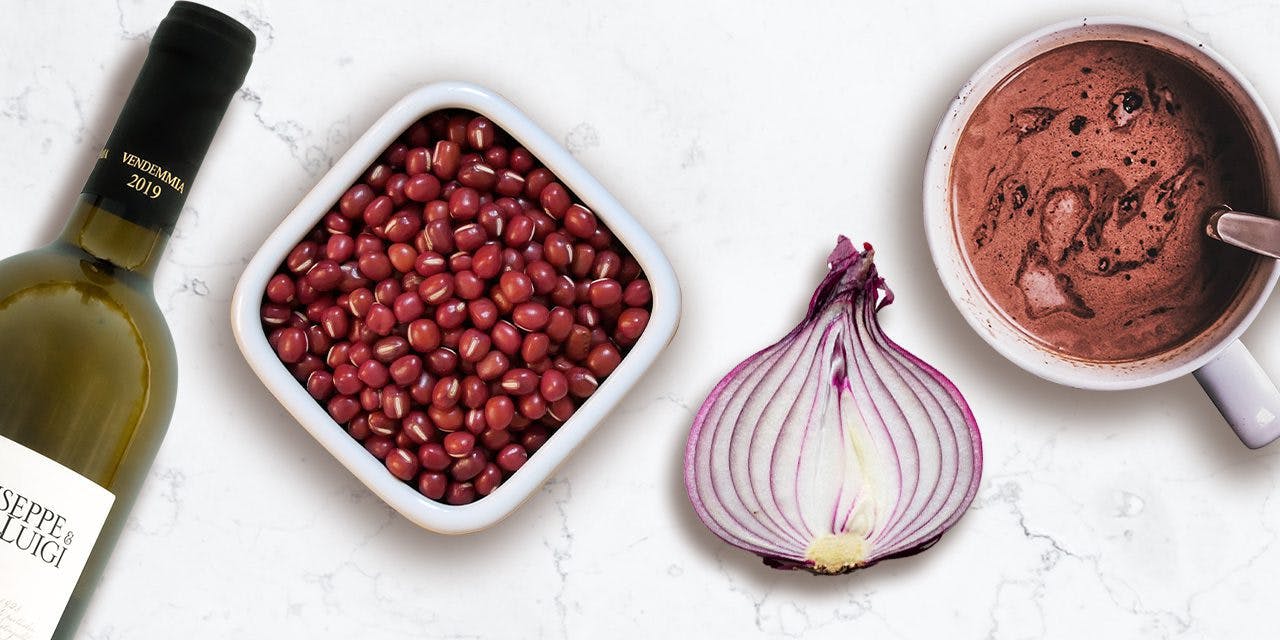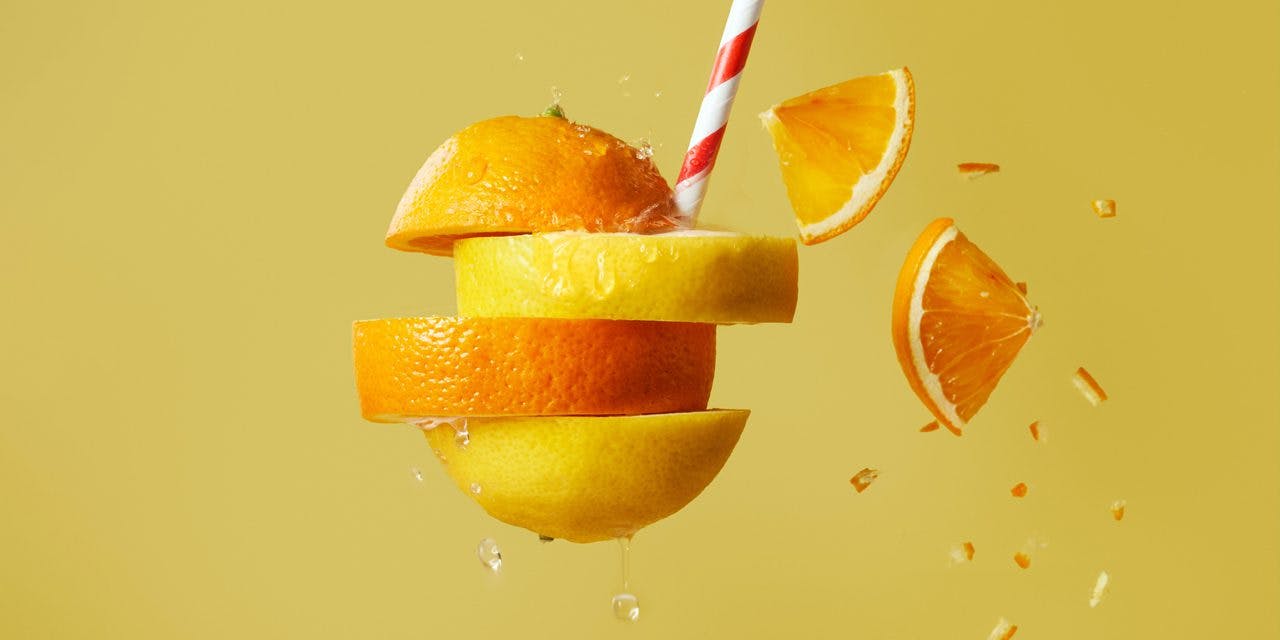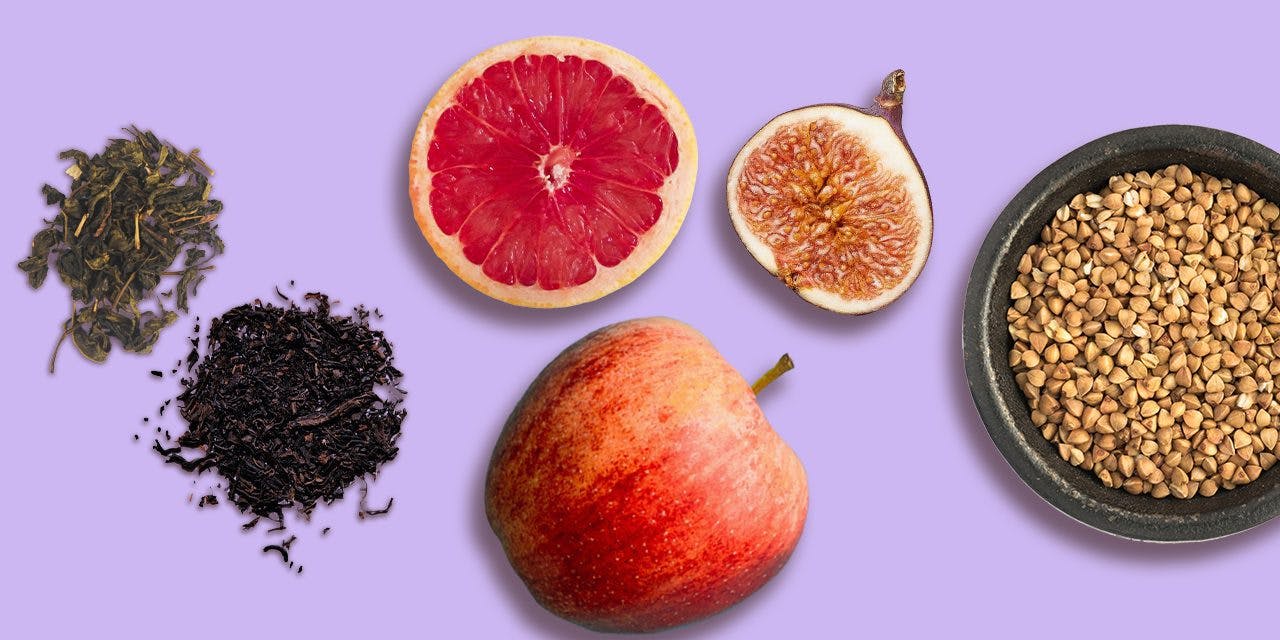What Is Catechin? Guide to the Flavonoid

Article written by

Tina MagrabiSenior Content Writer
Content reviewed by

Dr. Lewis JasseyMedical Director - Pediatric Medicine
Catechin is a bioflavonoid with potent therapeutic effects as an antioxidant and as a tool against inflammatory bowel disease (IBD). The flavonoid is found in fruit, vegetables and many natural beverages like broad beans, black grapes, strawberries, apricots and red wine. Catechin may serve a number of health purposes.
Learn about the many health benefits of catechin, along with the flavonoid’s connection to cannabis.
Get your medical marijuana card
Connect with a licensed physician online in minutes.
What Is Catechin?
Catechin is a flavonoid or natural nutrient found in plants, including cannabis. Flavonoids like catechin have been found to have beneficial effects on health by reducing oxidative stress, an imbalance in the body that can trigger many common diseases including cancer.
Many foods contain high concentrations of catechins. Strawberries, cherries, blackberries, pears, black grapes and apricots are some of the fruits rich in catechin. Chocolate also contains rich amounts of catechin, along with fresh tea leaves, notably green tea which offers many potential health benefits.
Among these possible therapeutic benefits is the reduced risk of cancer. Catechins protect cells from damage caused by free radicals, harmful molecules that build up and increase the risk of cancer and other diseases. Free radicals are also believed to accelerate the aging process and degrade the appearance of the skin.
Catechin is known as a strong antioxidant with the potential to both prevent and help treat cancer. For this reason, some people incorporate green tea into their diets and healthy lifestyles.
How Catechin Works in Cannabis
One notable way that catechin functions in cannabis is by binding to certain human cannabinoid receptors. Specifically, catechins in tea have an affinity for these receptors that are key components of your endocannabinoid system.
Flavonoids like catechin also give pigment (color) and taste to the cannabis plant. Flavonoids like catechin influence how your senses experience the cannabis product you are consuming in what you see, taste and smell.
Health Benefits and Uses
Research on the health benefits of catechin strongly points towards beneficial effects on cancer. Available data suggests that catechins are beneficial in the following ways:
Catechins and Cancer
Catechins in green tea have been found to be efficient in preventing many types of cancer. Research published in the International Journal of Molecular Science indicates that catechin could inhibit these types of cancer:
- Lung cancer
- Breast cancer
- Esophageal cancer
- Stomach cancer
- Liver cancer
- Prostate cancer
However, the researchers emphasized that green tea catechins are not a replacement for chemotherapy or other standard forms of cancer treatment. Furthermore, unfermented green tea was cited as the most potent way to consume catechins to potentially prevent cancer.
Catechins and Inflammatory Bowel Disease (IBD)
The consumption of catechin-rich foods like berries and apricots may help prevent and treat IBD, according to research published in the scientific journal Molecules. The anti-inflammatory actions of catechins have the potential to improve IBD outcomes, but researchers claim this improvement is modest. The scientists also reported that catechins could stabilize intestinal flora, or the balance of good bacteria, which could enhance people’s health whether or not they have IBD.
Catechins and Cardiovascular Health
Sipping a cup of hot cocoa or tea could improve your cardiovascular function. Catechins present in hot chocolate and other beverages may reduce blood pressure, thus enhancing heart health and blood circulation throughout the body.
Side Effects
Despite the health benefits of catechin, side effects may also occur in some people, especially those who take the flavonoid as a dietary supplement or consume it in high doses from food sources, especially green tea. The side effects of high levels of catechin may include:
- Liver damage or toxicity
- Gastrointestinal issues
Consult with your doctor before taking catechin supplements. Like most dietary supplements, catechin supplements have not received FDA approval. Furthermore, catechin supplements may not be safe to take if you are taking blood pressure medications, calcium channel blockers and certain other prescription drugs.
Remember: the safest way to experience any plant compound, including catechins, is directly from the source. Catechins are easily accessible in everyday foods and beverages, including many tasty varieties of tea. But even healthy habits like tea drinking should be practiced in moderation, i.e. refrain from consuming more than three to five cups of tea per day.
Experience a rich variety of flavonoids and other plant nutrients like catechin with a medical marijuana card. Apply for your MMJ card through Leafwell’s online clinic today and get your certificate to legally enjoy the potential health benefits of cannabis.
Get Your Medical Card
Connect with a licensed physician online in minutes.
Frequently Asked Questions
What is catechin good for?
Catechin is good for reducing cancer risks, combating inflammation, managing IBD and for boosting overall human health. Green tea catechins are especially beneficial in decreasing the presence of harmful free radicals and potentially lowering high blood pressure associated with cardiovascular disease.
What foods are rich in catechins?
Peaches, barley grain and pome fruits are rich food sources of catechins. Tea leaves and green tea extract are also rich in catechins.
What is the best source of catechins?
Tea is among the best sources of catechins. These natural medicinal compounds are abundant in green tea, black tea, white tea, and oolong tea. In addition to tea, catechins are phenols found in high levels in red wine.



